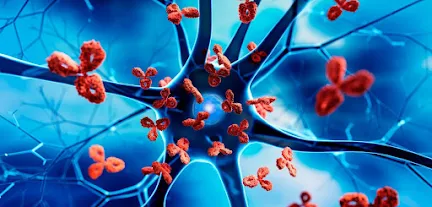The Role of Ayurveda in Autoimmune Disease Management: Holistic Healing for Modern Challenges
Introduction:
In a world where autoimmune diseases are on the rise, seeking holistic and effective approaches to their management is of paramount importance. Ayurveda, the ancient system of natural healing that originated in India over 5,000 years ago, has gained recognition for its ability to provide comprehensive solutions to modern health challenges. In this blog, we will explore the profound role of Ayurveda in managing autoimmune diseases, offering a holistic perspective that goes beyond symptom suppression and strives for long-term well-being.
Understanding Autoimmune Diseases:
Before delving into Ayurveda's role, let's briefly revisit autoimmune diseases. These conditions occur when the immune system, designed to protect the body from foreign invaders, mistakenly attacks its own tissues. This self-attack leads to chronic inflammation, discomfort, and damage to various organs and systems in the body. Autoimmune diseases are often complex, with ambiguous symptoms, making their diagnosis and management challenging.
The Ayurvedic Approach:
Ayurveda approaches autoimmune disease management by addressing the root causes rather than merely alleviating symptoms. Here's how Ayurveda plays a pivotal role in this process:
Dosha Balancing:
Ayurveda categorizes individuals into distinct body types or doshas: Vata, Pitta, and Kapha. Imbalances in these doshas are believed to be at the core of many health issues, including autoimmune diseases. Ayurvedic practitioners tailor treatments to restore dosha balance, bringing the body back to a state of equilibrium.
Immune System Strengthening:
Instead of suppressing the immune system as some conventional treatments do, Ayurveda aims to balance and strengthen it. Ayurvedic herbs and practices work to enhance the body's natural defense mechanisms, helping it distinguish between harmful invaders and its own tissues.
Stress Management:
Chronic stress is a known trigger for autoimmune responses. Ayurveda places a strong emphasis on stress reduction techniques like meditation, yoga, and mindfulness, helping individuals manage their mental and emotional well-being.
Dietary Modifications:
Ayurvedic dietary principles are tailored to individual doshas and the specific autoimmune condition. These diets emphasize whole, unprocessed foods that are easy to digest and provide nourishment to the body. Certain foods may be restricted or emphasized based on the individual's constitution.
Why Choose Ayurveda for Autoimmune Disease Management:
Holistic Approach:
Ayurveda treats the person as a whole, addressing not only physical symptoms but also mental, emotional, and spiritual aspects. This comprehensive approach is particularly valuable in managing autoimmune diseases that often have multifaceted causes.
Personalized Treatment Plans:
Ayurvedic practitioners recognize that every individual is unique. Treatment plans are customized to the individual's constitution, current health condition, and specific autoimmune disorder, ensuring the most effective approach.
Natural Healing:
Ayurveda relies on natural remedies, herbal medicines, dietary adjustments, lifestyle modifications, and detoxification techniques to stimulate the body's innate healing mechanisms. It aims to minimize the use of synthetic drugs and their potential side effects.
Patient-Centric Care:
Ayurvedic hospitals build strong doctor-patient relationships based on trust and communication. They collaborate closely with patients, educating and empowering them to take an active role in their healing journey.
Conclusion:
In the challenging landscape of autoimmune diseases, Ayurveda emerges as a beacon of hope for those seeking a holistic, personalized, and natural approach to management. By addressing the root causes, strengthening the immune system, and promoting overall well-being, Ayurveda offers a path toward long-term health and a higher quality of life. If you or a loved one is grappling with autoimmune disorders, consider Ayurveda as a trusted partner in your journey to well-being and healing.


.png)

Comments
Post a Comment